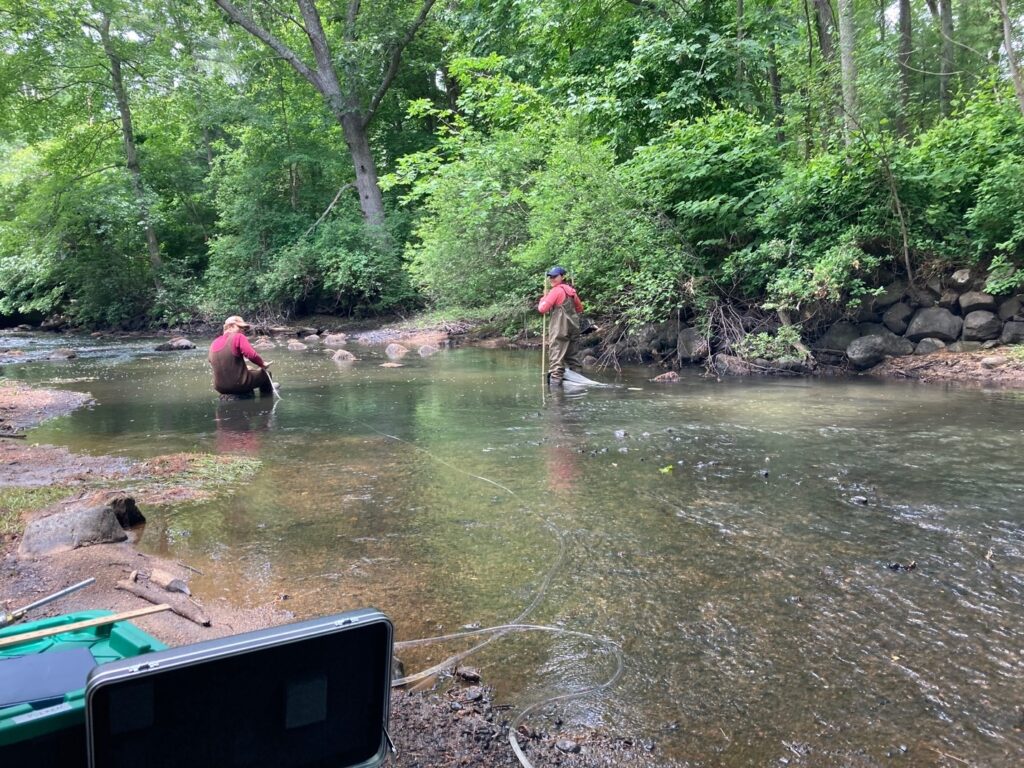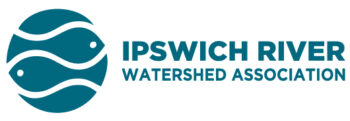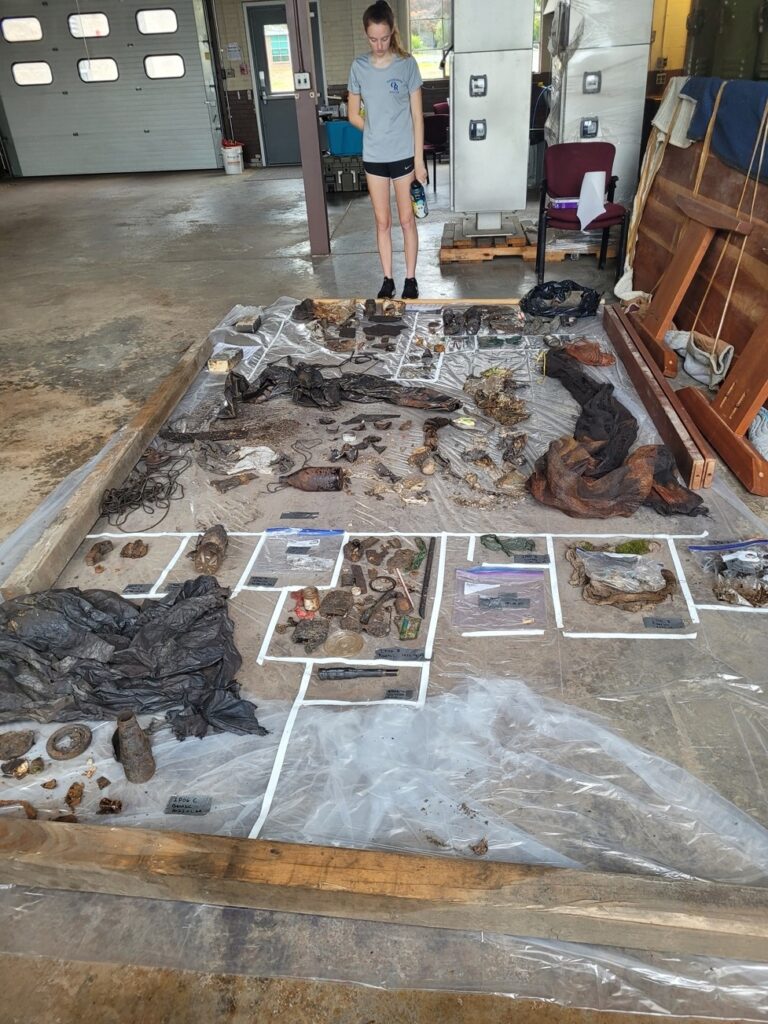This is a guest blog by Wilfred Wollheim, Professor, Natural Resources & The Environment, at University of New Hampshire.
Plastic pollution is accumulating in the oceans with much it entering from rivers. This study focuses on the Ipswich River watershed, addressing the question of how much is being stored in the sediments and banks of the river system vs exported in river flow to coastal areas. We measured the amount of macroplastic and microplastic stored vs. flowing downstream in 4 different river channels ranging in size from small headwaters located in Burlington MA and Danvers MA to larger river channels along the Ipswich River mainstem (near the USGS gages in Middleton and Ipswich). We found considerably more macroplastic stored in the urban headwaters than in the downstream river sites, even after accounting for dilution by forested land uses. This indicates that macroplastic is retained in the urban headwaters. In contrast, we found similar or higher microplastic stored in the larger rivers compared to the urban headwaters. This is consistent with the breakdown of macroplastic upstream, with the resulting microplastics transported downstream. We also found that storm events show increasing concentrations with discharge in the headwaters but not the mainstem, suggesting flow controls the timing of when microplastics are transported to larger rivers, where they can accumulate. Macroplastic mass stored throughout the Ipswich is much higher than microplastic mass storage. Further, rough estimates suggest that the flux of microplastic leaving the watershed each year is much greater than the mass of microplastic stored on the stream bottom. The opposite seems likely for macroplastic. The results suggest that microplastic exports dominate total plastic exports from this watershed, and that better quantification of these fluxes over annual time frames is essential for understanding exports to the ocean.
This study is a collaboration of researchers at the University of New Hampshire, Loyola Chicago, and University of Toronto, via funding from the National Science Foundation and the Ocean Conservancy. For more information, please contact [email protected].



we pick trash from the river every time we paddle. most freq plastic is nip bottles and drink bottles. ( water, sports drinks) occ plastic bag, balls etc.